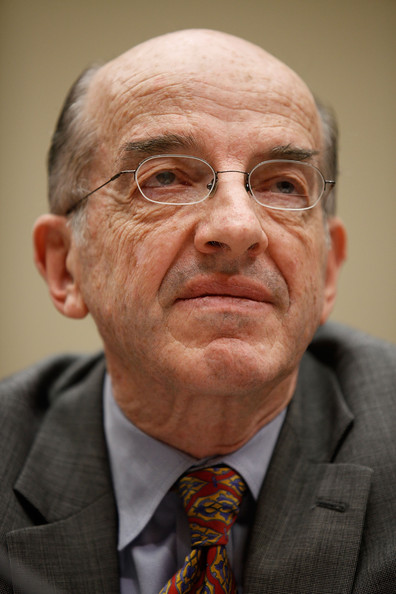Three Generations of Failure

Thursday, March 5, 2020
Digital Beat
Three Generations of Failure

We are now in the third generation talking about getting broadband out to all our citizens. We are nowhere near getting the job done. It’s a market failure. It’s a government failure. And it’s a national embarrassment.
Big telcos and their allies at the Federal Communications Commission and Congress tell us all is well and we’re on track. Pretty long track! Make that claim in many of our inner cities like Baltimore, Milwaukee, and Newark and you will get laughed out of town. Try to sell that pitch in rural America where nearly 30% of people are still waiting. Visit tribal lands where over 40% (and I think that’s a low estimate) lack access to fixed broadband. Check in with marginalized communities including people of color, seniors, low-income Americans, individuals with disabilities, and you’ll see the same sad story.
Even where there is broadband availability, it’s most often through a monopoly provider. Some 35% of us live in areas with only one provider offering download speeds over 100 Mbps. That means consumer-gouging costs. In 2017, the last figures I have (cited in a recent article in VOX), the average monthly cost of broadband in the U.S. was $66.17. In France it was $38.10; in Germany $35.71; in South Korea $29.90. In overall internet speeds, Akami reported we were tenth in the world. Regarding cellular download speeds, Opensignal told us last year that the U.S. was 30th in the world.
We invented the internet, didn’t we? How did we go from global pace-setter to global laggard?
One, we allowed a cartel of providers to divide the country into monopoly—occasionally oligopoly—markets, snuffing out competitors, gutting public interest oversight, and charging consumers whatever the traffic could bear. Two, Washington (DC) permitted itself—actually encouraged—special interest take-over of much of the legislative and regulatory process. Lobbyists and industry lawyers actually wrote the legislative bills that soon became laws, a privilege that their enormous campaign contributions bought for them. They wrote corporate-friendly “conditions” for the FCC to attach to merger approvals. They had access and they used it to wield influence. This swamp hasn’t even started to be drained. Three, special interests resurrected a long-since discredited free-market ideology and sold it to too many folks as revealed truth. Sadly, a lot of people—by no means are all of them special interests—actually still believe this stuff.
I had a front-row seat to all this while serving on the Federal Communications Commission beginning in 2001. While the Telecommunication Act of 1996 was no great piece of forward-looking legislation, it at least envisioned competition, but I saw the FCC majority green-lighting decision after decision undercutting the legislation’s pro-competitive provisions by granting the big carriers forbearance from most everything they didn’t like in the Act. At the same time, the FCC approved merger after merger as the big guys ate not only the competitors’ lunch but ate the competitors themselves. It was a market failure because it destroyed markets and it was a government failure because it destroyed any real semblance of consumer protection and public interest oversight.
Imagine an agency that is supposed to be encouraging broadband build-out that doesn’t have a clue which areas have it and which areas don’t. Instead it relies on maps produced by—you guessed it—the companies themselves, which take advantage of an agency framework that allows them to submit self-reported data that considers an entire census block fully served if just a single residence in the block has broadband! Imagine an agency whose current majority does everything it can to discourage community and municipal broadband and thwarts local oversight. Imagine an agency that is driving toward elimination of the very modest broadband subsidies designed during the Reagan administration to help those who cannot afford broadband. Imagine an agency which has ruled that broadband isn’t even a telecommunications service to begin with, so that said agency has no role to play in what is now the obvious backbone of the nation’s telecommunications. Well, you don’t have to imagine such an agency. We have it right now—it’s the Federal Communications Commission, and its current majority is inflicting incalculable harm, not just on communications but on the future of our country. Under the current FCC’s watch (or lack thereof) we have seen an increase in broadband prices, embarrassingly large corporate profiteering, network outages, and risks to public safety.
So here we are in the third decade of the twenty-first century with a broadband marketplace captured by special interests, aided and abetted at almost every turn by a government eager to do their bidding. It’s not how we built America. And it is not how we keep America great.
How we built America was with people working together—industry, government, states, cities, and labor pulling together. And this cooperative effort began at the beginning—with bridges, postal roads, turnpikes and canals that provided the foundations for economic growth. It continued with railroads, electricity, dams and interstate highways. What we had then and lack now was a sense of mission and national purpose. For generations, we used all our resources, creativity, and vision to provide the essential infrastructure upon which continued growth depended. But then, particularly under Presidents Reagan and George W. Bush and now Donald Trump, the focus has been solely on the supposed beauties of the market. The market can get it all done by itself, no help needed, we are told by such leaders and their corporate enablers. Those who spew this nonsensical verbiage try to equate their hands-off approach to the “American way,” but actually it is diametrically opposite to the American way that actually built our nation. Should we really wonder, then, why in this third generation of broadband build-out, we are still years from getting the job done?
While they go about stymieing forward-looking policy in Washington, these same special interests have lobbied states and localities to cut back their efforts, slashing funding and even putting state regulatory agencies out of any meaningful role in broadband planning and deployment. Luckily, some are moving ahead in spite of heavily-funded lobbying pressures against them. Dozens of cities have already moved ahead to ensure that their residents have broadband access, while others explore innovative options such as cooperatives, which did so much in earlier generations to build out essential infrastructure, like electricity. It’s uphill work against heavy headwinds, but it is one bright chapter in an otherwise dismal tale.
We need leadership that develops a sense of mission because it has a vision. We need sectors and agencies and jurisdictions pulling together on a common goal of bringing advanced telecommunications and truly high-speed broadband to every American, no matter who they are or where they live. We’re talking a civil right here, because without the tools of the information age readily at hand, no one can be a fully-participating and fully-productive citizen. No President, of either party, has provided this kind of leadership on what I consider the central infrastructure challenge of our time.
So this Administration and its FCC majority continue wielding their wrecking ball, approving mergers, demolishing generations-old public interest protections, favoring an internet for the few over a democratic internet for everyone, all the while making up totally nonsensical claims about how their communications policies are increasing real incomes and consumer welfare by (the most recent claim) nearly $100 billion a year. What rubbish!
Equally worrying is that some courts are joining the assault. “Oh, there is nothing that can be done about a vertical merger wherein a corporation controls both the content and distribution of a product,” a federal court tells us; but, in truth, there was for years clear judicial concern about just this kind of merger. Even anticompetitive horizontal arrangements like the T-Mobile/Sprint merger, which reduces the wireless marketplace from four to three carriers, are getting approved by the courts. What a shot in the arm decisions like these are for more telecom, media, and internet consolidations and the higher consumer prices that accompany them! Now we hear even Supreme Court justices questioning if federal expert agencies should have any role in interpreting the statutes they are charged with implementing. Let’s be clear: this would be a direct and perhaps fatal assault on the ability of federal agencies to perform the jobs they were designed to do. This Administration and its Senate allies are hell-bent on the destruction of the kind of citizen-first government that we have come to depend upon to protect consumers and advance the common good.
Surely this is no time to be appointing judges who are capable only of rear-view mirror jurisprudence. I am an historian by training. I like to look to the past, too, but as a guide to where we have been, not a carved-in-stone map to a future none of us can predict. Our founders knew they were setting sail toward a daring new vision. They gave us essential tools to help us realize and expand that vision. But they knew full well that achieving success was up to us, not to them.
This is the year when we must decide whether it is the road past or the road ahead that we will take. Understanding how we have so mishandled broadband in particular and communications generally can help inform our decisions for a better future. It’s a make or break year for America that will define the next generation of broadband access—and perhaps of democracy itself.
Michael Copps served as a commissioner on the Federal Communications Commission from May 2001 to December 2011 and was the FCC's Acting Chairman from January to June 2009. His years at the Commission have been highlighted by his strong defense of "the public interest"; outreach to what he calls "non-traditional stakeholders" in the decisions of the FCC, particularly minorities, Native Americans and the various disabilities communities; and actions to stem the tide of what he regards as excessive consolidation in the nation's media and telecommunications industries. In 2012, former Commissioner Copps joined Common Cause to lead its Media and Democracy Reform Initiative. Common Cause is a nonpartisan, nonprofit advocacy organization founded in 1970 by John Gardner as a vehicle for citizens to make their voices heard in the political process and to hold their elected leaders accountable to the public interest. Learn more about Commissioner Copps in The Media Democracy Agenda: The Strategy and Legacy of FCC Commissioner Michael J. Copps
The Benton Institute for Broadband & Society is a non-profit organization dedicated to ensuring that all people in the U.S. have access to competitive, High-Performance Broadband regardless of where they live or who they are. We believe communication policy - rooted in the values of access, equity, and diversity - has the power to deliver new opportunities and strengthen communities.
© Benton Institute for Broadband & Society 2020. Redistribution of this email publication - both internally and externally - is encouraged if it includes this copyright statement.
For subscribe/unsubscribe info, please email headlinesATbentonDOTorg






